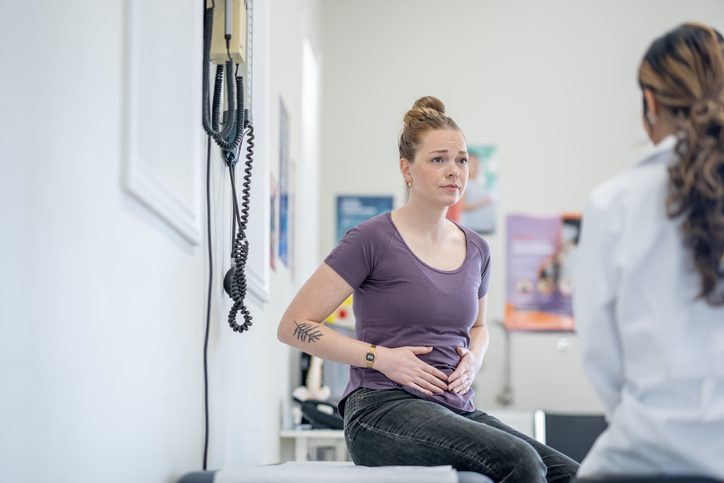Dysphoric milk ejection reflex (D-MER) is a condition that causes sudden negative emotions during...
Read More
Your pelvic floor muscles support a number of muscles and organs in your pelvic region, including your bladder, urethra, vagina, uterus, cervix, intestines, rectum and anus. Keeping your pelvic floor muscles healthy is key to ensuring your body is functioning at its best and you’re maintaining your quality of life.
There are a number of disorders that can occur in and around the pelvic floor, including sagging of the organs, weakening of the pelvic muscles and connective tissues, and problems with bowel and bladder function.
Symptoms of pelvic floor disorders vary depending on the type of condition you’re experiencing, but may include:
If you are experiencing any of these symptoms, be sure to make an appointment with your primary care or OB/GYN provider, who will determine if a referral to a urogynecologist is needed.
Depending on your symptoms, your health care provider may use a number of tests to diagnose your pelvic floor disorder, including a physical exam, pelvic imaging and urine testing. These tests may also include a pelvic ultrasound or MRI of the pelvis to rule out structural etiologies, a cystoscopy, a test that enables physicians to look for inflammation, stones or tumors in the bladder. And Urogynecologists may offer urodynamics, a combination of tests used together to evaluate how the urethra and bladder are functioning while your prolapse is reduced.

Behavioral therapy is a safe way to learn lifestyle modifications that can help your pelvic floor function better, including pelvic muscle training, bladder training, relaxation exercises and fluid or diet modifications.
Surgery for pelvic floor disorders can include slings for stress urinary incontinence, sacral nerve stimulation for urge urinary incontinence, overactive bleeding, interstitial cystitis and open, vaginal, or robotic assisted laparoscopic surgery to treat prolapse and other urogynecologic conditions.
Devices such as pessaries, which are used to support the vagina, uterus,/cervix, or rectum, can provide a safe alternative to surgery. Medications are available to help with symptoms of a variety of urogynecologic conditions as well. Patients with certain urogyn conditions may also qualify for botox injection into the bladder, urethral bulking in the urethra, percutaneous tibial nerve stimulation, or trial of percutaneous nerve evaluation for the sacral nerve modulation in the office.
Inspira’s urogynecologists are trained in the most up-to-date treatment methods for pelvic floor disorders, including vaginal, laparoscopic and robotic surgery. Whether you’re looking for help training your pelvic floor muscles or seeking a permanent solution for urinary incontinence, we’re here to address your needs. And with several locations across South Jersey, you won’t have to travel far for care.
The pelvic floor is a group of muscles and ligaments located between the tailbone and the pubic bone. This group of muscles surrounds and supports the bladder, bowels and uterus.
Risk factors for pelvic floor disorders include obesity, chronic constipation or straining to have a bowel movement, lifting heavy weights and chronic coughing from smoking or other health problems. Pelvic floor muscles can also be affected by childbirth, menopause and aging, leading to a higher risk of pelvic floor disorders.
Most pelvic floor disorders are treatable without surgery through a combination of behavioral therapy, physical therapy and medication. You may be surprised by how much improvement you’ll see with simple lifestyle modifications like reducing caffeine intake. Identifying pelvic floor disorders early and starting treatment right away can lead to quicker and better recovery from symptoms.
Pelvic floor exercises are a great way to strengthen your pelvic muscles and improve symptoms of pelvic floor dysfunction. Exercises you can do at home include bridge pose, squats and kegel exercises—a method of squeezing and releasing your pelvic floor muscles.
At Inspira’s convenient South Jersey locations, our urogynecologists and pelvic medicine specialists are here to help identify and address whatever you might be facing.

Dysphoric milk ejection reflex (D-MER) is a condition that causes sudden negative emotions during...
Read More
Polycystic Ovary Syndrome (PCOS) affects millions, yet many misconceptions still surround this...
Read More
From midwives and obstetricians to nurse practitioners and birthing coaches, here are the...
Read More